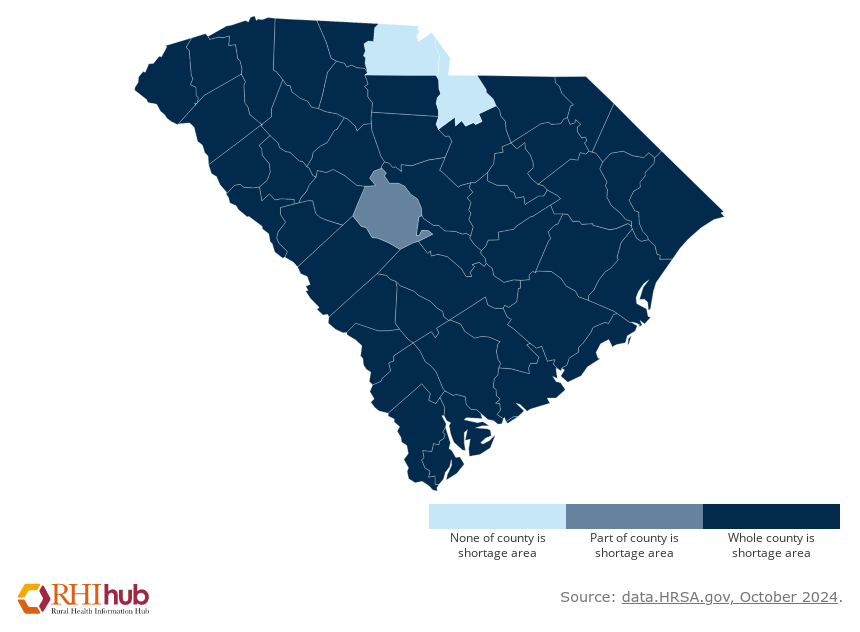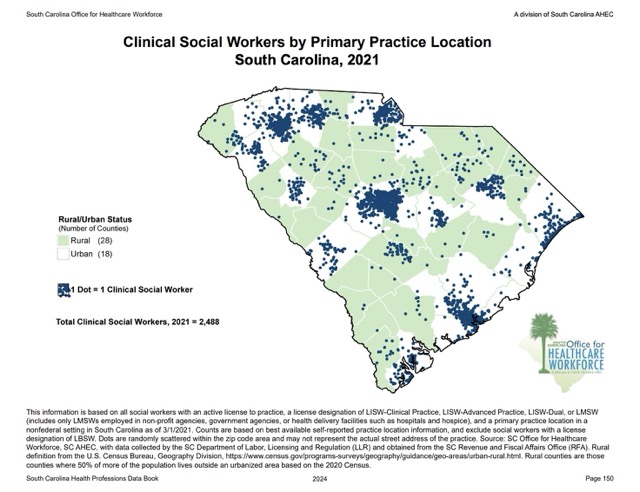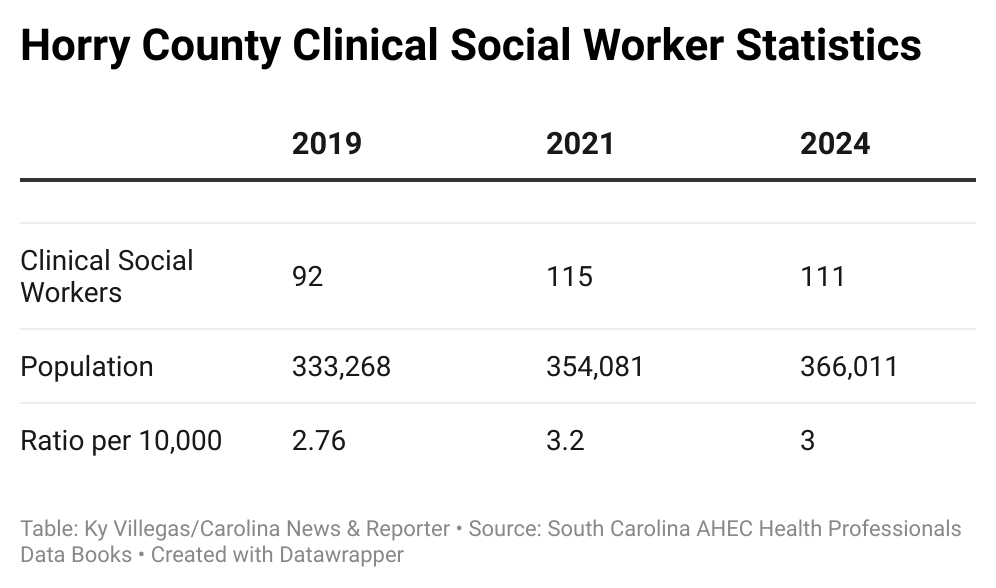AYNOR, S.C. — Joyce Lupo Bell, 66, felt overwhelmed and frustrated before hospice started taking care of her late father, Elton Lupo.
“We didn’t understand that dementia was what it was,” Lupo Bell said. “We didn’t understand what it does to you, how it changes you as a person. It’s like you’re two different people.”
Elton Lupo started receiving hospice care during COVID, and a social worker also helped provide him care, in partly by listening to his life’s stories.
“It helped him a lot just to feel validated,” Lupo Bell said. “He could talk about these things that he’d been telling us.”
Lupo Bell said the social worker made a “big difference” for her father. She said there was a need for social workers in rural South Carolina areas, especially with elderly people. She feels elderly people are “overlooked” because of their age and are often lonely.
A 2015 study on the social work workforce estimated the United States would have a shortage of 195,000 social workers by 2030, with some of the most severe shortages occurring in the South. A new state program could help rural South Carolina counties fill that gap.
The South Carolina state legislature established the Rural Behavioral Health Professional Incentive Program through a state budget proviso taking affect in July 2024. The legislature appropriated $1.5 million for the program, to incentivize mental health providers to join or establish a practice in rural areas.
The program is open to psychologists, social workers and mental health clinical nurse specialists as well as counselors and therapists. Telehealth providers can also apply for the program, given the providers cover non-urbanized areas of the state.
Horry County is the largest county in the state by land area. The county between 2021 and 2022 had 119 mental health providers, according to the 2024 South Carolina Healthcare Professions data book. Of the 119, 111 were clinical social workers.
The data book designated Horry County as having a shortage of mental health professionals. The incentive program aims to help fill that gap.
The program will offer full-time mental health providers $15,000 per year on top of their salary, up to four years, and $7,500 yearly for part-time providers. The providers, in exchange, will work in an outpatient setting in a non-urbanized area for four years.
The program brochure says the continuation of the contracts from year to year is based on “availability of funds allocated by the South Carolina General Assembly.” Ali McMenamin, the South Carolina Area Health Education Consortium communications director, said the organization intends “to seek funding for the program in subsequent fiscal years.”
The budget proviso put the consortium in charge of the program. The consortium was created in 1972 to “recruit, train and retain a health professions workforce committed to underserved populations,” according to the organization’s website. The Medical University of South Carolina administers the consortium.
Ann Lefebvre, a MUSC professor and the consortium’s executive director, said the rural healthcare issue was “a continual kind of push and pull,” because rural areas don’t experience the same population growth as metropolitan counterparts. She said the consortium must draw providers to the rural areas.
Kevin Bennett, a USC professor and director of the South Carolina Center for Rural and Primary Healthcare, believes the new incentive program could attract providers.
“There’s a lot of latent demand of people who aren’t seeking care because they don’t think it’s for them or they’ve been told not to do it,” Bennett said. “I think these types of programs are effective and can get providers in the communities, which is what you want.”
Bennett said the programs were “vital” to the access to healthcare in rural areas.
“Without them, (rural communities) would have fewer (healthcare providers), and their access would be lower,” he said. “It would not be a good situation for anybody.”
Providers can apply for the program beginning from January 2025 through April 2025. Specific dates will be published on the consortium’s website.




